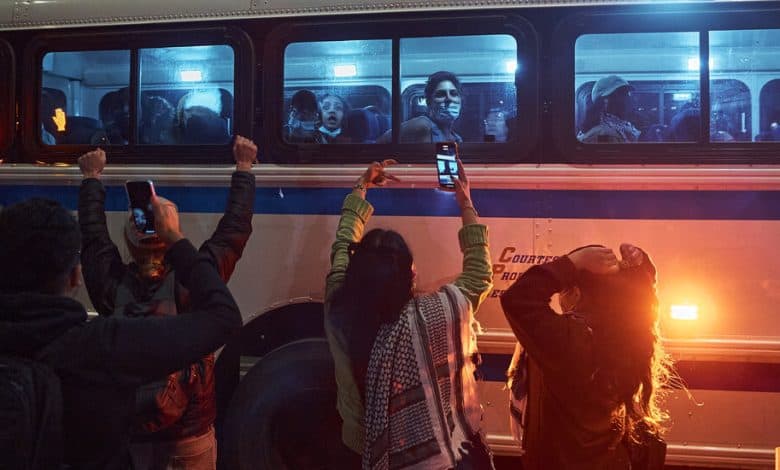Why Is N.Y.U. Forcing Protesters to Write Apology Letters?

At one point during the demonstrations at Columbia University in 1968, protesters took the acting dean of the liberal arts college hostage. Barricading his office door with furniture, they kept Henry Simmons Coleman, a former Navy man, locked up for 26 hours. When he was finally released, he seemed unfazed; there had been plenty to eat. Retaliation was not on his agenda. So little did it interest him, apparently, that he went on to write letters of recommendation on behalf of those captors who applied to law school.
Although elite-college officials have been spared kidnapping amid the current turmoil resulting from the war in Gaza, it is hard to imagine any administrator acting quite so forgivingly now. In the decades since the previous round of unrest, the modern university has become paradoxically more coddling and less conciliatory — caught between its subservience to the student consumer demanding an almost therapeutic comfort and a donor base insistent in its perceived authority, bending to no one.
Inevitably, questions around consequences for the student protests have become entangled in these contradictions. A few days after she and dozens of other students and faculty members were arrested at a demonstration at New York University on April 22, Ellis Geary, who had just completed a doctorate in history, got an email from the Office of the Dean of Students that she found perplexing.
“Living and processing this distressing experience evokes various emotions and complex feelings which may affect your ability to focus and feel safe,” it read. But the only “distressing experience,” to her mind, was N.Y.U.’s decision to call in the police to quiet the protests in the first place. The office went on to promise “guidance, encouragement and support” for the problem it had created.
While the university eventually moved to have the criminal charges against the students dropped, it initiated a disciplinary process against some of them (the university will not disclose how many) that seemed as if it had been conjured in the writers’ room of a dystopian sci-fi series. In order to return to the university, some students would be required to complete a 49-page set of reading and tasks — “modules” — known as the Ethos Integrity Series, geared at helping participants “make gains” in “moral reasoning” and “ethical decision making.” In a letter to the administration, Liam Murphy, a professor at the law school, called it “an intellectual embarrassment,” betraying the university’s mission as a training ground for independent thought and forcing students merely “to consume pages and pages of pablum.”
The Ethics Integrity Series was not the only command. Some students would be assigned a “reflection paper,” the details of which were laid out by the Office of Student Conduct. In it they would address several questions, among them: What are your values? Did the decision you made align with your personal values? What have you done or need still to do to make things right? Explicitly instructed not to “justify” their actions, the students were told to turn their papers in by May 29 in “12-point Times New Roman or similar font.”